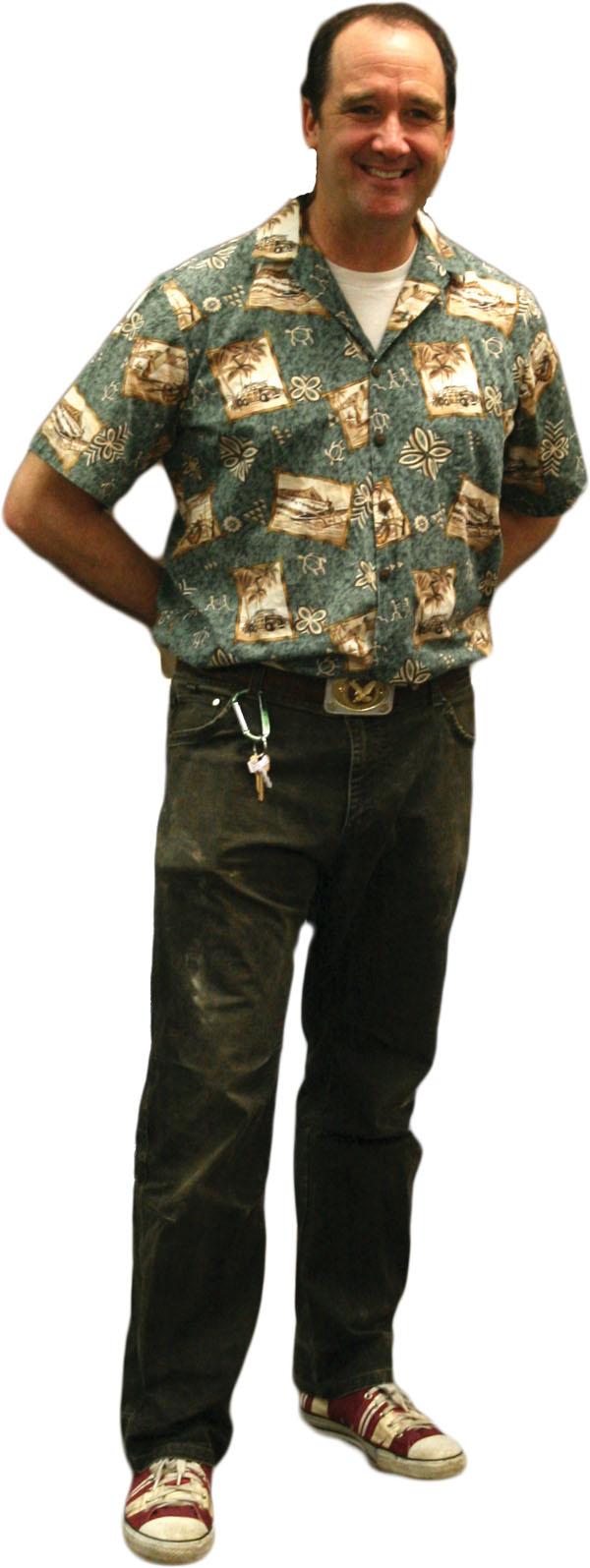
Dressed in a colorful Hawaiian shirt, jeans and Converse sneakers, Eric Bloom poses for the camera. He looks up and down, pretends to lecture the photographer, and throws his hands up in a ‘What did I do?’ gesture. Bloom, one of Paly’s longest-serving staff members, has recently been given an additional role as a Teacher on Special Assignment with an emphasis on improving the school culture and overall atmosphere. In the past, PAUSD has also used TOSAs for extra math and technology assistance. Bloom feels that his many years as a teacher make him a good fit for the TOSA role.
“I have a pretty good rapport with students,” Bloom says. “I have a good rapport with the staff, I’ve been here for a long time, so I kind of know the players, the issues, I know what we’ve done in the past, what’s worked and what hasn’t, so I kind of bring that institutional memory into it.”
Bloom says taking the TOSA role fit his educational background and satisfied his PAUSD ambitions.
“I went to principal school . . . [and this job] kind of blends classroom and administrator together,” Bloom says.
According to Bloom, the TOSA job was an opportunity he had been hoping for.
“I’ve been interested in taking on an administrative role in the district for a couple years now,” Bloom says. “This was a position that opened up, [and Principal Kim] Diorio thought that I would be well-suited for it so she encouraged me to apply for it.”
Bloom hopes his wealth of experience as a teacher will prove helpful in his new role.
“As a Teacher On a Special Assignment, my role is to become a little 40 percent administrator, like two-fifths of Ms. Diorio,” Bloom says. “Because of the way I perceive myself as a classroom teacher, I think I affect that already as a classroom teacher, so the role will be ‘easier.’”
According to Bloom, his first objective is to reduce bullying, a problem that he says occurs throughout all levels of the school community. He would also like to improve student-teacher relationships.
“I want students to know that they sometimes make teachers mad,” Bloom says. “And I want teachers to know that they sometimes make students mad … and that’s alright. But how do we make it so that it’s not corrosive to learning? … That’s my big thing.”
Bloom also identifies academic honesty as a major problem. As Paly’s current policy is under revision, Bloom would like get the input of students and parents to vet the revision process.
“We want students to think about, ‘okay, if I get caught doing this cheating, what’s going to happen to me?’” Bloom says. “And so [we want] to have an understanding; ‘is that a reasonable consequence, does that make sense, is that going to prevent it cheating from happening again?’”
Additionally, once the revision process is finished, Bloom wants to change the connotation of cheating so that “it’s not the penalty that prevents people from cheating; it’s the idea that they don’t think they should be doing it.”
Aside from the bullying and academic honesty issues, Bloom would like to work directly with students and parents to improve openness of Paly’s atmosphere by forming a climate committee containing parents, teachers, and students. Overall, Bloom says he wants to focus on creating a more open and considerate environment.
“We want people to feel more empathetic, more welcoming, more willing to have discussions,” Bloom says.
